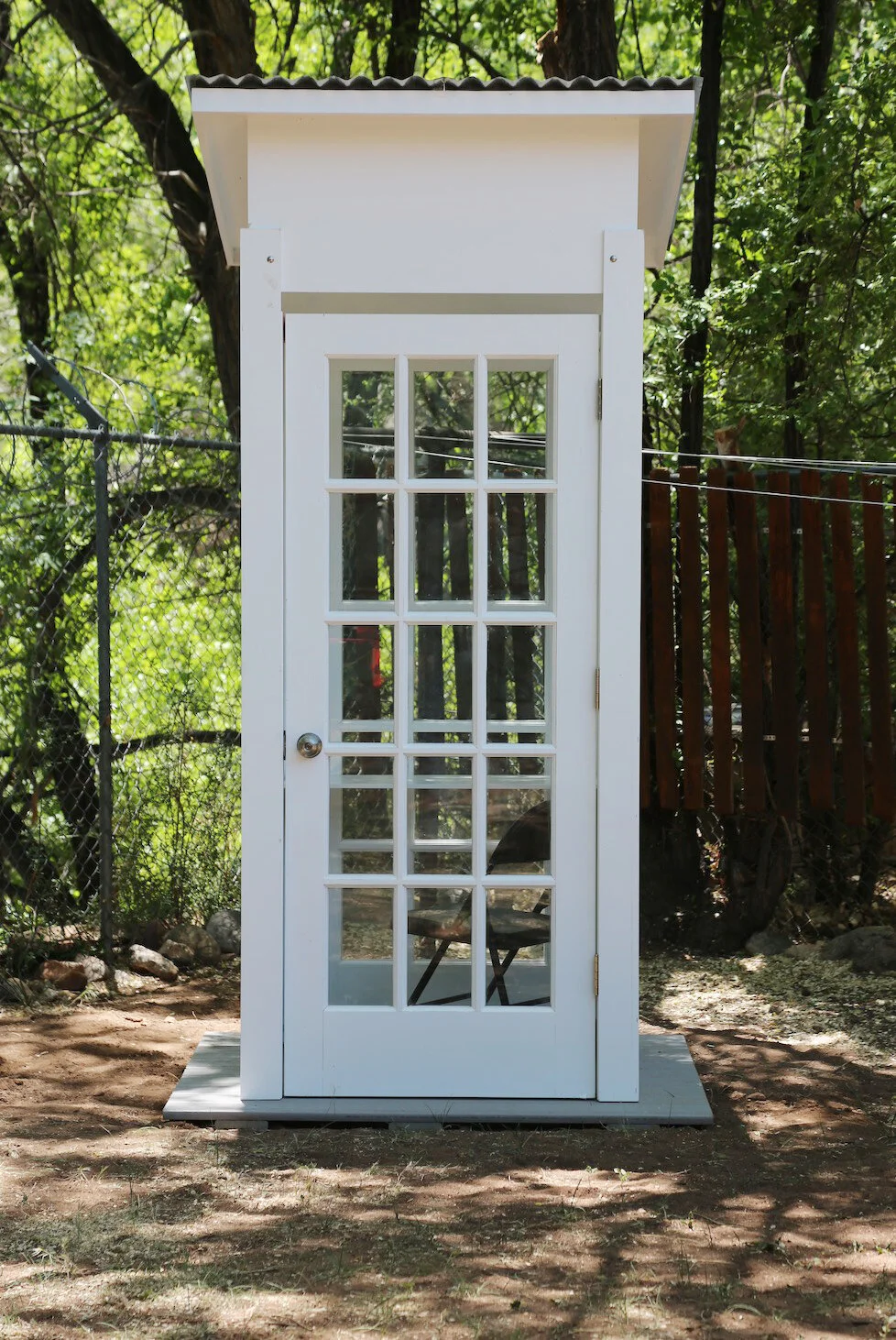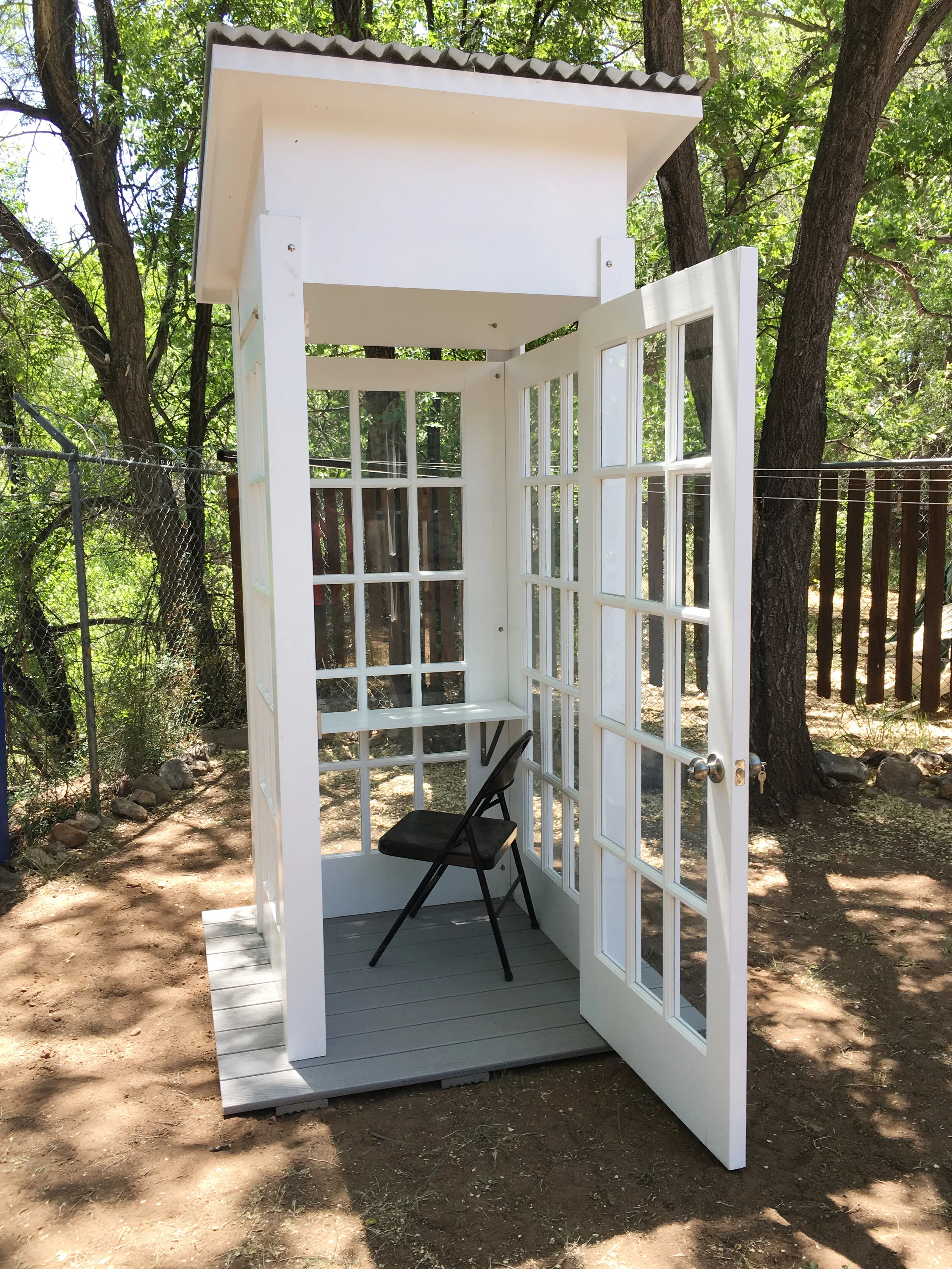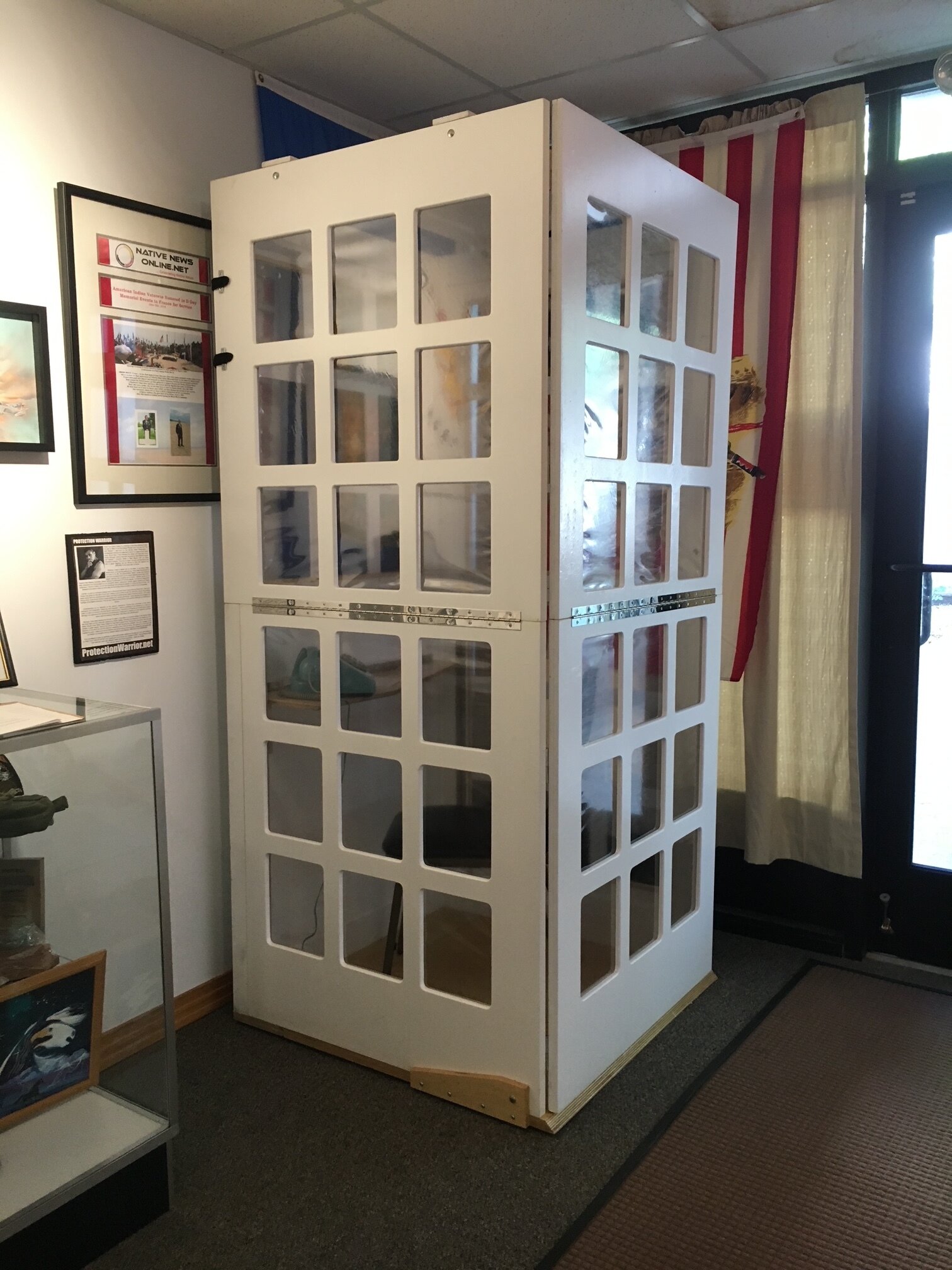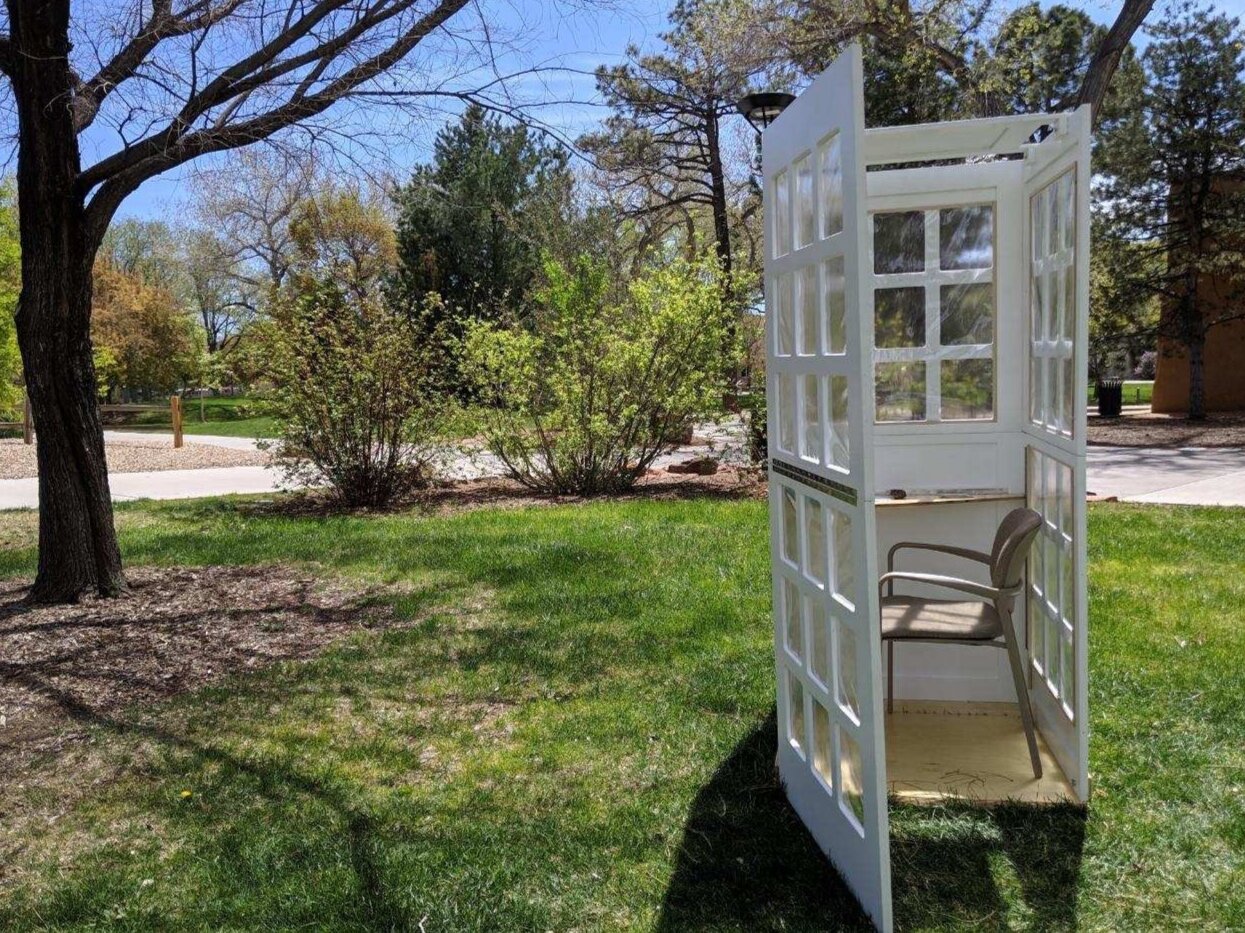Lines Across Time is a project of the Arts-in-Medicine program at the University of New Mexico.
Collaboration with Wesley Janeka.
Context
In 2011, a devastating earthquake and tsunami struck Japan causing the small town of Otsuchi to lose almost everything. A year before this tragedy, a resident of Otsuchi named Itaru Sasaki situated an old phone booth in his garden as a way to muse over his cousin’s death. Longing to preserve a relationship with a departed loved one is a deeply relatable desire but can be a delicate proposition. “Because my thoughts couldn’t be relayed over a regular phone line,” Sasaki told the Japanese TV channel NHK Sendai. “I wanted them to be carried on the wind.”
The phone booth in Sasaki’s garden holds an old disconnected rotary phone, and since the tsunami has become a gathering place for people to recall loved ones lost. It now serves as a pilgrimage site of sorts where residents can come to work out painful feelings in a comfortable space.
Lines Across Time
The Lines Across Time Memory Booth offers both an invitation and occasion for people to “call” someone and “talk” to them, even if they are not physically connected through an operating telephone line. The Memory Booth is open to the public and anyone is welcome to enter and engage with it.
The Lines Across Time Memory Booth opened in 2018 at the Museum of the American Military Family in Tijeras, New Mexico, to serve communities throughout the state. At the museum, the Memory Booth provided active-duty military members, veterans, and their families a way to process the often painful memories that might arise from military service.
In 2018 a mobile version of the booth was built so that we could bring the Memory Booth into different communities and facilities across the state. With this mobile booth, we have been able to collaborate with different groups and facilities to offer a variety of programming designed for specific communities’ needs.
In the Spring of 2019, we collaborated with EL CENTRO de Igualdad y Derechos, a grassroots immigrants’ rights and workers’ justice organization, to share the Memory Booth with their staff and community.
In the Spring of 2020, we collaborated with Crossroads for Women, a nonprofit that provides housing and therapeutic services to women emerging from incarceration, to design an eight-week program utilizing the Memory Booth as a catalyst for dialogue, creative expression, and community building. The program will bring together a group of women from the Crossroads community once a week to engage in dialogue and creative encounters relevant to their individual experiences interacting with the booth.



